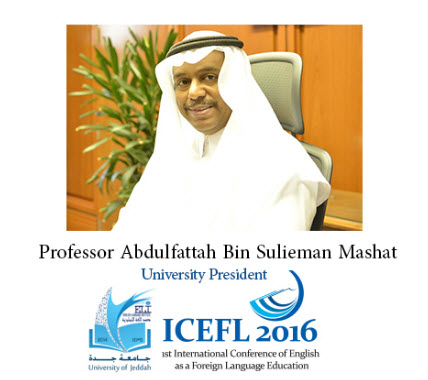Exploring the Infringing Behaviors of Students Inside an EFL Classroom: A Research Study From the Teacher’s Vantage Point
On 2 December 2020, a webinar was organized by the Language Research Center (LRC) of the Faculty of Languages and Translation dedicated to those students who are often overlooked by the teachers and are tagged as bad students entitled "Exploring the Infringing Behaviors of Students Inside an EFL Classroom: A Research Study From the Teacher’s Vantage Point." At the beginning of the webinar, Dr. Najmus Sarifa and Ms. Rakshinda Jabeen began by explaining their study's purpose, which is centered on the premise that there are neither bad students nor bad teachers, noting that only expertise, competence, and cooperation can do wonders in the class.
Sarifa and Jabeen introduced their topic by stating the fact that the infringing behavior of students is defined as a set of undesired and objectionable behavior that hampers the flow of teaching-learning activities in the classroom. Such behavior, they said, can result in a disturbance in class and eventually hinder the entire learning process. Not only is it annoying for the teachers, but it is irritating, exasperating, and tiresome for the learners as well, they added. They pinpointed some common misbehavior types such as disobedience, rudeness, non-attentiveness, daydreaming, unpunctuality, and most importantly, not completing classroom tasks.
Their research study investigated how university teachers perceive misbehavior and sheds light on the underlying causes of such undesired behavioral traits. It was based on a descriptive survey, the result of which showed the common inappropriate behaviors the teachers encounter and the reasons for such behaviors. The findings of the study, they said, would help to establish a well-managed classroom.
To achieve proper education goals, Sarifa and Jabeen explained that it is important to create an ideal learning environment that fosters a positive attitude among the students.
While explaining the potential reasons for misbehavior, they mentioned some scholars Başar (1998), Bull & Solity (1996), and Stephens & Crawley (1994). According to these scholars, they said, students with variegated characters may have problematic behaviors. Students' past experiences may result in misbehavior as well. The teacher's attitude towards students may also give rise to such undesired attitudes.
Sarifa and Jabeen emphasized that skillful classroom management will make a significant change and lessen the amount of undesirable behavior in class. The presenters further recommended that effective instruction and the smooth running of a lesson require interaction patterns, and teaching methodologies that create diverse communication contexts in an EFL classroom.
They concluded that students rarely misbehave without cause. The research study opens room for further analysis and discussion on outside factors as well as the inside factors responsible for disruptive behaviors. They recommended further exploration of the reasons for misconduct among students.
During the question-answer session, LRC Director, Dr. Ismail Alrefaai, emphasized that it is important to explain the rules, regulations, and expectations at the beginning of every course or class. He also placed emphasis on reducing teacher talk time in language classes and ensuring teaching and learning strategies are student-centered and encourage active learning.
The webinar was very interactive yielding insights into a better understanding of the appropriate methods to care for, motivate, and support underachieving students in the Bachelor of Arts in English program.
The Bachelor of Arts in English program at the Faculty of Languages and Translation is committed to ensuring that students are provided with effective academic, professional, psychological, social guidance, and counseling services through qualified and sufficient staff.
Date: 12/3/2020
Source: Mohammad Adil Siddique



